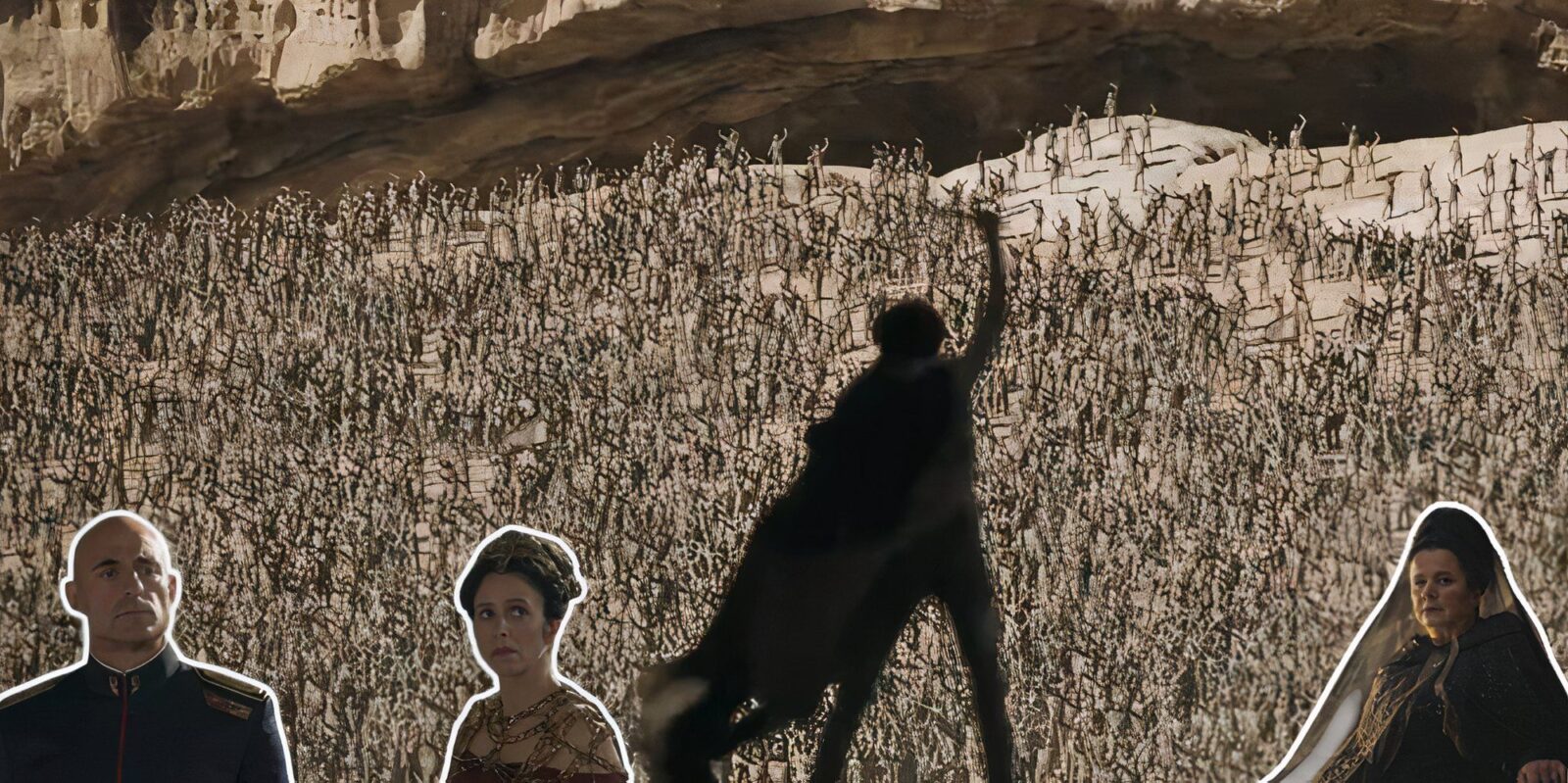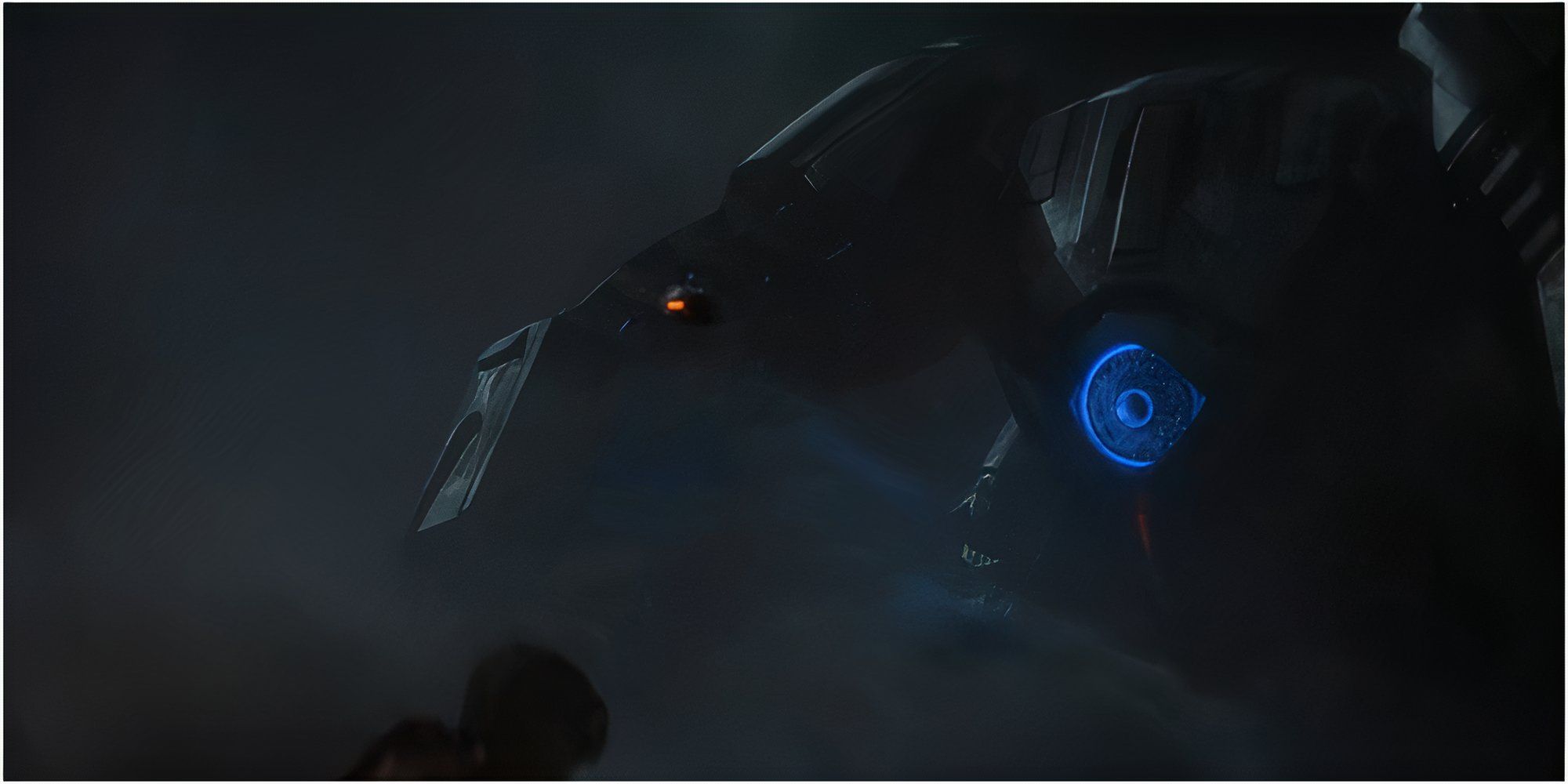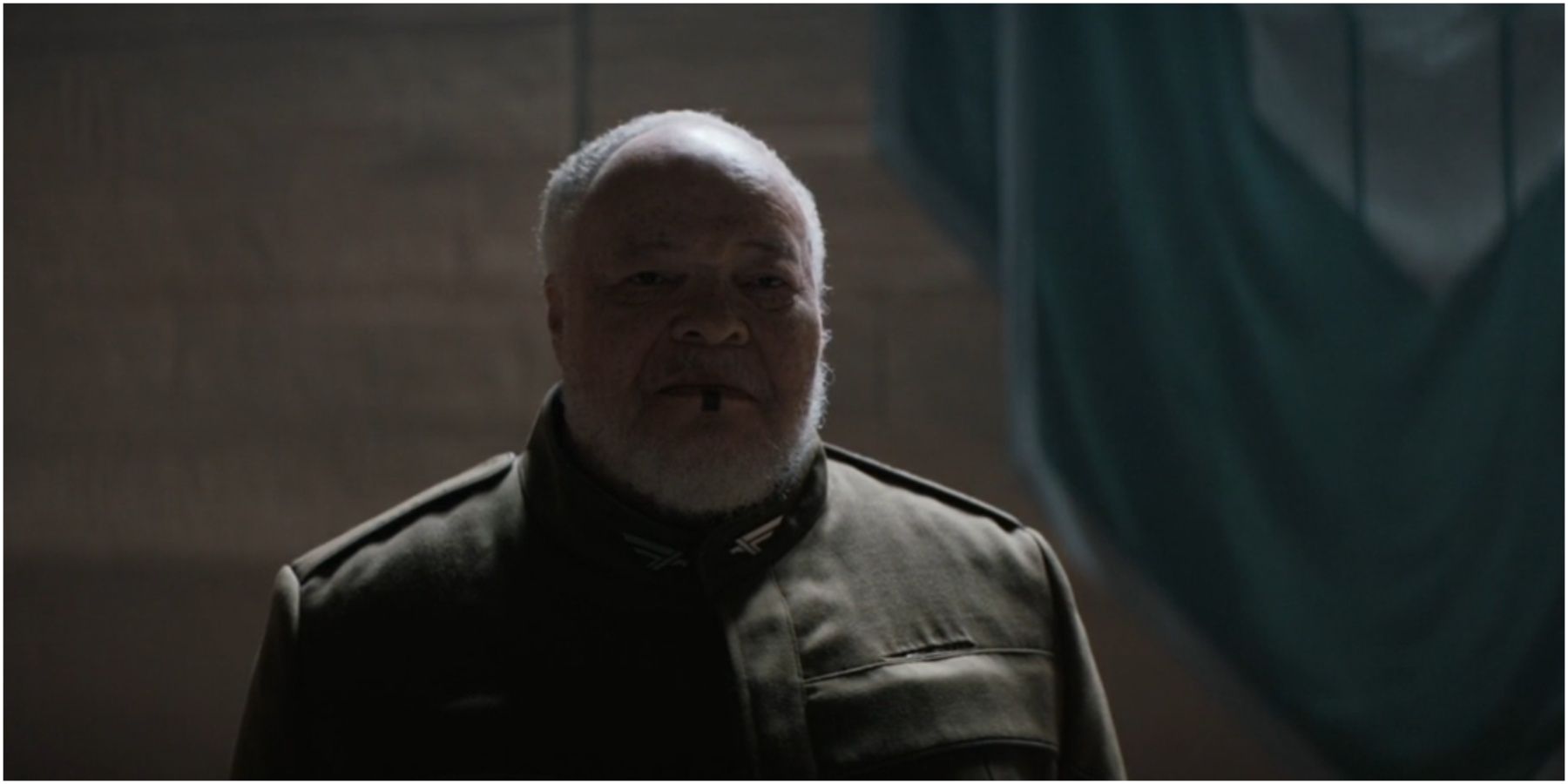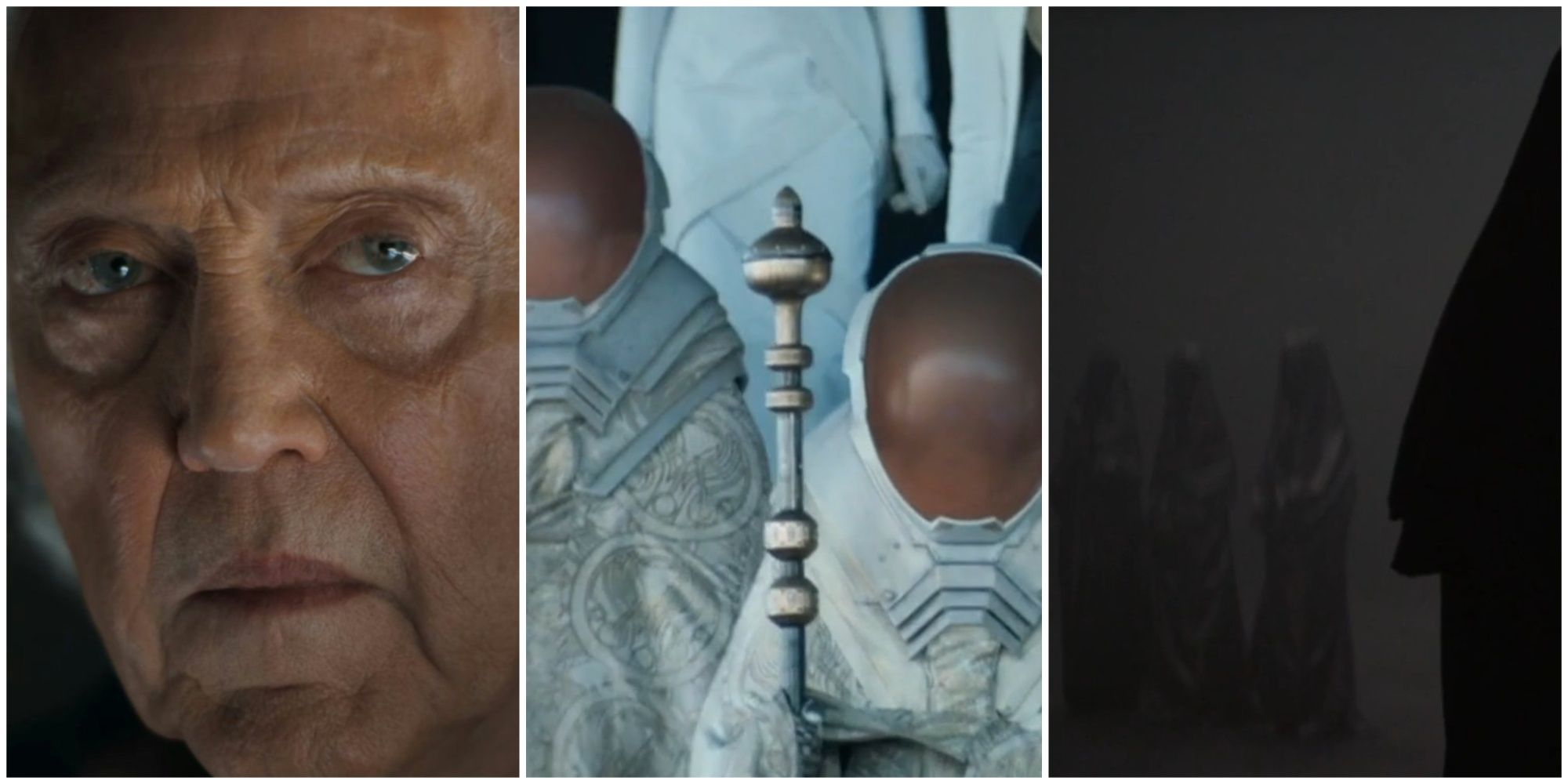Key Takeaways
- The Butlerian Jihad influenced the Known Universe by outlawing machines and AI, leading to the Great Convention and Kanly.
- Post-Jihad, Mentats, Bene Gesserit, and the Spacing Guild emerged to fill the void left by thinking machines.
- The Jihad’s repercussions included the emergence of a repressive, feudal class system, maintaining stability in the Imperium.
The Butlerian Jihad holds a significant place in Frank Herbert’s works, and in those of his follow-up authors, Brian Herbert and Kevin J. Anderson. It is recognized as a watershed event and a pivotal moment in the history of Dune lore. The war had a key influence on the Known Universe, especially because it led to the prohibition of the use of Thinking Machines.
The outlawing of computers and artificial intelligence acts as a critical backdrop within Herbert’s narrative. Consequently, it serves as a framework and sets up the events of Denis Villeneuve’s two-part Dune saga, the events of which take place more than 10,000 years after the Jihad. Dune: Prophecy, meanwhile, takes place less than a century after the event, when its effects are still being felt. Much has been made of the Butlerian Jihad throughout Dune, but what were its wider socio-political and technological ramifications?

Related
What Is Dune: Prophecy Based On?
This Brian Herbert and Kevin J. Anderson novel inspired the HBO series, Dune: Prophecy.
The Historic Great Convention
Kanly, War Of Assassins, OC Bible, & The Ban On Thinking Machines
The Great Houses convened after the obliteration of sentient machines in the Butlerian Jihad. The most powerful entities in the Known Universe — the Imperium, the Great Houses, and the Spacing Guild — met shortly after the destruction of the thinking machines and brokered a treaty, agreeing to prohibit the use of atomics against human targets, as well as pledging the protection of human life.
In pursuit of the recognition that humans are superior to other forms of existence, the Great Convention regulated warfare and feuds by drafting strict rules. The practice known as Kanly arose out of these efforts, and it permitted resolving bitter feuds without collateral harm or damage to innocents. Kanly occurred between the honorable House Atreides and House Harkonnen. It permitted certain forms of conflict and forbade the use of nuclear weapons. The Great Convention also permitted employing a clandestine form of warfare: the War of Assassins, which involved the practices of treachery and professional assassination as vengeful acts.
The Orange Catholic Bible was produced sometime after the Butlerian Jihad by the Commission of Ecumenical Translators. It is the sacred religious text that the Bene Gesserit and Gurney Halleck from Dune often speak of. The convention was held on a neutral island of Old Earth, and the leaders of all religions of the Known Universe participated. The OC Bible was produced at the end of 7 standard years, and one of its best-known commandments is:
Thou shalt not make a machine in the likeness of a human mind.
This commandment of the OC Bible forbids the creation of intelligent/sentient/Thinking Machines, and it sets the philosophical foundations of Dune lore. Humans rose against Thinking Machines to free themselves from entrapment and enslavement. The Sisterhood, for example, trains acolytes in the enhancement of human abilities. Dune: Prophecy season 1, episode 1 “The Hidden Hand” confirms that when the Butlerian Jihad ended, all “thinking machine technology” was banned.
Mental-Physical Training Schools
The Order Of Mentats, The Bene Gesserit, & The Spacing Guild Filled the Vacuum
After the machines were obliterated and outlawed, some members of society took on specialized roles as Mentats (human computers). At the time when Paul Atreides and his family arrive on Arrakis, the Mentat Thufir Hawat is in the service of the Atreides, while the Twisted Mentat Piter de Vries serves the Harkonnens.
Special schools, such as the Bene Gesserit Sisterhood (the focal point of HBO’s Dune: Prophecy), the Order of Mentats, and the Spacing Guild arose in the aftermath of the Butlerian Jihad. They aligned with the societal values in the post-war era and honored the prohibitions against creating Thinking Machines.
The Mentats and the sisters of the Bene Gesserit and cultivate remarkably advanced cognitive functions and abilities, and each organization takes up specialized roles within the Imperium. The ladies of Bene Gesserit walk the corridors of power, and attached to every Padishah Emperor is a Bene Gesserit adept who holds the title of Truthsayer. Mentats are in the service of the Great Houses in the capacity of political advisors. The third leg of this tripod structure, holding up the Emperor at the top, is the Spacing Guild, acting as a replacement for the functions previously performed by the conscious machines. The Guild of Navigators is formidable because of their monopoly on all interstellar travel.
Emergence Of A Repressive Class System
A Ramification Of The Butlerian Jihad
Despite the remarkable recovery of the galactic civilization after the Butlerian Jihad, it cannot be denied that the civilization in Dune operates in an oppressive and rigid interstellar feudal system, known as the Faufreluches. This system is put in place to safeguard the interests of the hereditary Padishah Emperor and House Corrino, albeit with various checks and balances. Reverend Mother Gaius Helen Mohiam informs Paul Atreides in Dune:
We’ve a three-point civilization: the Imperial Household balanced against the Federated Great Houses of the Landsraad, and between them, the Guild with its damnable monopoly on interstellar transport.
All the Great Houses get representation in the Imperium via a body known as the Landsraad. The Great Houses of the Landsraad exercise control over planetary fiefs or Siridars, given by the Emperor. They have a stake in the CHOAM company, which has a monopoly over all forms of interstellar trade. The Imperial Houses, the Landsraad, Bene Gesserit, and the Spacing Guild all have a stake, and the bigger the stake, the greater the power. The imposition of a rigid socio-political order by the Emperor benefited him well in the days of the Corrino Empire.
This brand of devolution of power in Dune sees to it that the Great Houses administer the Emperor’s will on their planets, but the Dukes, Barons, Archdukes, and Counts don’t always rule with justice. House Harkonnen ravaged Arrakis for the precious Spice Melange, and their rule was devastating for the planet’s native populace.
In the futuristic world of Dune, with humans of extraordinary abilities (through training and genetics), feudalism is the lever for interplanetary colonization. After the Butlerian Jihad, the Empire remained steadfast in feudalism for reasons of its vastness. A Mentat in Children of Dune thought of Feudalism as “the best social form for spreading over widely dispersed wild frontiers — new planets.”
The Butlerian Jihad shaped the very nature of the Imperium, providing a firm underpinning for the foundation of its organizational structure, and the class system. Stability is a justification for the Faufreluches class system. Social stratification is required to maintain the rigid structure of the Imperium, notwithstanding the inequality it brings with it. The feudal structure in Dune led to the oppression of the ordinary peoples, in particular the Fremen under the Harkonnens.

More
Dune: The Faufreluche Class System, Explained
Dune’s brand of social stratification goes by the name of the Faufreluche system, but why does the Imperium impose it?

Dune
- Release Date
- October 22, 2021
- Director
- Denis Villeneuve
- Studio(s)
- Legendary Pictures













Leave a Reply